Colchicine is an old drug known to interfere with microtubule polymerization, therefore affecting white blood cell diapedesis, endocytosis, and exocytosis. More recently, it has been shown to inhibit the NLRP3 inflammasome, perhaps through its effects on microtubule polymerization, and therefore inhibit inflammasome formation and subsequent IL-1 and IL-18 production. It has a narrow therapeutic window, with intolerance mainly due to GI side effects, and significant and potentially dangerous interactions with multiple medications, and is overall considered a weak anti-inflammatory medication. However, when used early in safe doses, it is an effective therapeutic in pericarditis, gout, familial mediteranean fever, behcet’s, and sweet syndrome. Likely its prophylactic and early use efficacy is related to its ability to prevent amplification of inflammatory pathways.
All interactions between colchicine and COVID19 are entirely theoretical and include: reduction of neutrophil recruitment, reduction of ACE2 expression and receptor mediated endocytosis (ACE2 identified as the receptor by which COVID19 enters cells), reduction of virus exit from cells, and inhibition of the NLRP3 inflammasome (the inflammasome which SARS-COV-1 activates).
There are several studies under way to evaluate the use of colchicine for patients with COVID19 however there is no data to date. At this time colchicine is NOT recommended outside of a clinical trial.
Given colchicine GI side effects and risk for unblinding, we recommend that randomized control trials consider use of safe placebo with similar side effect profile as done in the AMBER trial for patiromer (10.1016/S0140-6736(19)32135-X).
There are several studies under way to evaluate the use of colchicine for patients with COVID19. However there is no data to date.
At this time colchicine is NOT recommended outside of a clinical trial.
Medication Specific Circumstances
Based on the current literature, what dosing is recommended?
- Consider loading dose 0.6 mg BID (12 hrs apart) on day 1, followed by 0.6 mg daily. Can consider 1.2 mg BID
Is drug monitoring required?
- No
Supply and procurement consideration: Is treatment currently available for use in our system, and if so are shortages anticipated? Are there currently restrictions or other barriers?
- Unknown
Considerations for use in special populations?
- Pregnant women: limited data, likely safe given use in FMF (Praveen L Indraratna, Sohaib Virk, Divya Gurram, Richard O Day, Use of colchicine in pregnancy: a systematic review and meta-analysis, Rheumatology, Volume 57, Issue 2, February 2018, Pages 382–387, https://doi.org/10.1093/rheumatology/kex353)
- Lactation: likely safe. Can consider taking after breast feeding session and not feeding again for 3-4 hours. This is optional.
- Renally cleared, needs renal adjustment
 = Supporting use article = Supporting use article |
 = Neutral Article = Neutral Article |
 = Contradicting use article = Contradicting use article |

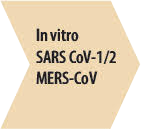 |
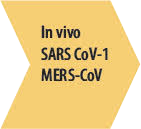 |
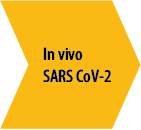 |
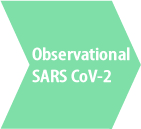    |
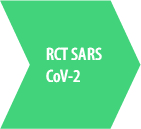 |
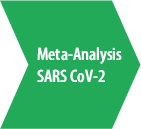 |
Major Peer-reviewed Studies
 Observational SARS CoV-2
Observational SARS CoV-2
 Dabbagh MF, Aurora L, D'Souza P, Weinmann AJ, Bhargava P, Basir MB. Cardiac Tamponade Secondary to COVID-19 [published online ahead of print, 2020 Apr 23]. JACC Case Rep. 2020. doi:10.1016/j.jaccas.2020.04.009
Dabbagh MF, Aurora L, D'Souza P, Weinmann AJ, Bhargava P, Basir MB. Cardiac Tamponade Secondary to COVID-19 [published online ahead of print, 2020 Apr 23]. JACC Case Rep. 2020. doi:10.1016/j.jaccas.2020.04.009
- Case report
- Pt with pericardial effusion, tamponade, takotsubo cardiomyopathy pericardiocentesis, colchicine, corticosteroids and hydroxychloroquine
 Gandolfini I, Delsante M, Fiaccadori E, et al. COVID-19 in kidney transplant recipients [published online ahead of print, 2020 Mar 31]. Am J Transplant. 2020;doi:10.1111/ajt.15891
Gandolfini I, Delsante M, Fiaccadori E, et al. COVID-19 in kidney transplant recipients [published online ahead of print, 2020 Mar 31]. Am J Transplant. 2020;doi:10.1111/ajt.15891
- Case report
- Pt with kidney transplant
 Della-Torre E, Della-Torre F, Kusanovic M, et al. Treating COVID-19 with colchicine in community healthcare setting [published online ahead of print, 2020 May 31]. Clin Immunol. 2020; doi:10.1016/j.clim.2020.108490
Della-Torre E, Della-Torre F, Kusanovic M, et al. Treating COVID-19 with colchicine in community healthcare setting [published online ahead of print, 2020 May 31]. Clin Immunol. 2020; doi:10.1016/j.clim.2020.108490
- Case series, 9 patients treated from home
- Dose: 1 mg BID on day 1, 1 mg daily thereafter until afebrile for 72 hours
- Started ~8 days after initial COVID symptoms and after ~3 days of spiking fevers despite acetaminophen and antibiotics
- Result: defervescence within 72 hours of starting colchicine. 1 of 9 was hospitalized with mild ARDS requiring O2 therapy
Notable Clinical Trials
- NCT04322682 COLCORONA (montreal heart institute, NYU, w/in 100 mi of NYU); 0.5 mg BID 3 days then QD for 27 days; within 24hr of COVID+ & have 1 high risk factor & 40yo+ & not-hospitalized
- NCT04355143 COLHEART-19 (UCLA); 0.6 mg BID 30 days; 18yo+; COVID+ with any sign of cardiac injury
Additional colchicine studies can be found on clinicaltrials.gov.